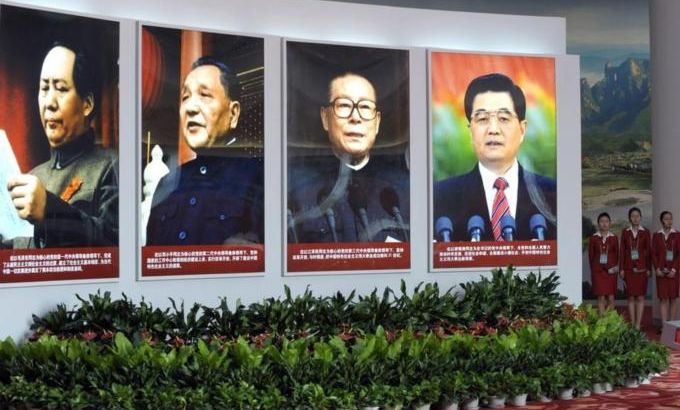
Is China headed for real change?
As ruling Communist Party congress takes place in Beijing, we ask what the proposed reforms mean for the people.
China’s once-in-a-decade changing of the guard is underway.
President Hu Jintao has been addressing the ruling Communist Party congress in Beijing, as he prepares to hand over power.
New leaders are being ushered in to guide the country over the next ten years, and reforms have been promised.
But the week-long meeting is being held against the backdrop of a flagging economy, scandals over corruption, concern over the environment and anger over the distribution of China’s wealth.
|
“Many people mistakenly or willingly think that this gathering is with an intention to discuss the future of China, or to discuss which direction China goes to, or to decide which way to follow to improve Chinese people’s quality of life. But I think the gathering is more a way to consolidate the [Communist] Party’s unity and to make everybody understand who is [the] boss.“ – Jian Alan Huang, a blogger |
The UN says 13 per cent of China’s 1.3 billion people live on less than $1.25 a day.
Meanwhile, according to the latest Hurun Report rich list, there are 2.7million Chinese who are US dollar millionaires and 251 Chinese who are US dollar billionaires.
Most Chinese see the widening income gap as the country’s main problem over the next decade.
A nationwide poll found that 75 per cent of respondents were concerned about a growing gulf between the rich and the poor.
Almost 60 per cent said abuse of power posed a threat to China’s future prosperity.
So what kind of China will the new Communist Party leader inherit from outgoing president Hu?
When Hu took power in 2002 many hoped for political reform, which has not happened. But the country has advanced both culturally and economically.
|
“This is a major transition. It is the handing over of the baton from one generation of leaders to another generation of leaders. This is the time to sum up all the successes as well as failures …. This is a major, major political event which will help shape China’s development in the next 10 years.“ – Victor Gao, a Chinese international relations expert |
In 2002 China’s economy was the same size as Italy’s – now it is the second largest in the world.
The last decade has seen China launch its first manned space flight, and it has hosted its first Olympic Games.
Hu has used a soft-power, business-oriented approach in his dealing with the world. In doing so China has increased its influence in resource–rich countries of Africa and Latin America.
But Hu also saw the dangers of a growing gap between China’s rich and poor, and uneven development between the interior and the country’s coastal region. However, both issues remain.
So, as China’s leadership enters a new era, will the proposed reforms bring real change to the country?
To discuss this, Inside Story, with presenter Sami Zeidan, is joined by guests: Victor Gao, director of the China National Association of International Studies and a former China policy advisor; Jian Alan Huang, a professional software engineer who blogs and tweets about China; and Martin Jacques, author of When China Rules The World: The End of the Western World and the Birth of a New Global Order and a fellow at the Transatlantic Academy in DC, who is also visiting professor at Tsinghua University in Beijing.
|
“The economy has been developing in a fast and stable manner. Great progress has been made in the opening up and in reforms. People’s living standards have been improved notably.” Hu Jintao, China’s president |
CHINA’S COMMUNIST PARTY:
- Over 2,000 delegates gather in Beijing’s Great Hall of the People for the Communist Party congress
- The Chinese Communist Party has ruled the country since 1949
- At the top of the power pyramid is the nine-member politburo standing committee – ranked by number
- Number one is the general secretary, who is also head of the military and the president – currently Hu Jintao
- Xi Jinping is the leader in waiting – currently number five, but widely expected to take over from Hu
- All nine are part of a broader 25-member politburo
- But it now has only 24 memebers because Bo Xilai was expelled earlier this week
- Politburo members are chosen by the central committee once every five years
- The committee in turn is elected by the Party Congress
- The Communist Party governs every aspect of life in China through the armed forces and the state
- China’s other political arm is its legislature – the National People’s Congress
- The entire system is designed to promote collective leadership